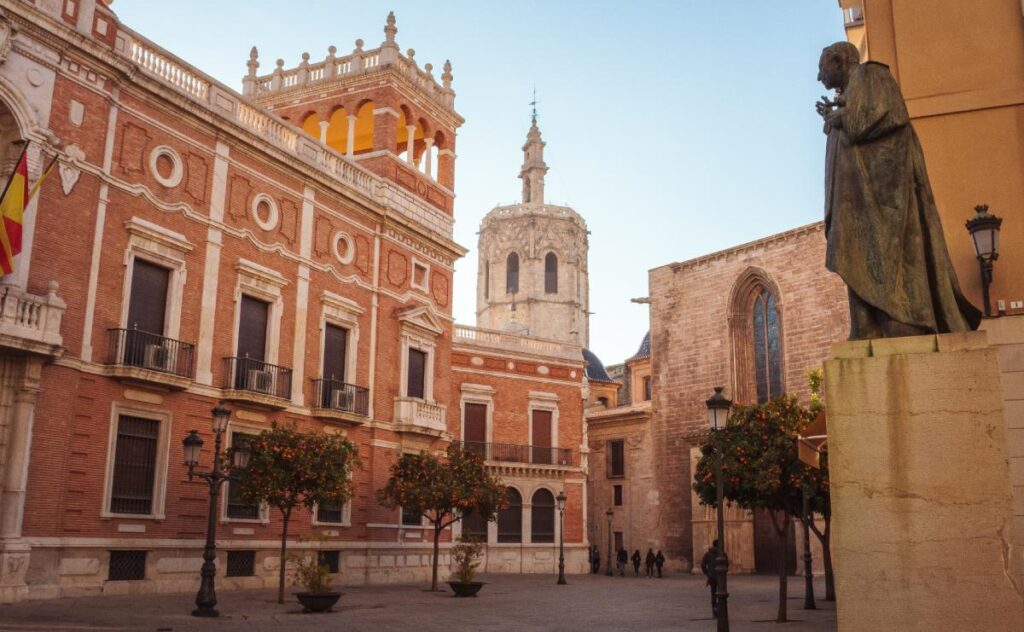7 biggest mistakes when moving to Spain
- 👍 List of the 7 mistakes when moving to Spain
- 🏆 Failure to secure a place to reside before arriving.
- 🏆 Not obtaining necessary visas while in the home country.
- ☝️ Lacking knowledge of basic Spanish before arriving.
- 🔍 Failure to conduct a thorough research about the area you plan to reside in
- ☝️ Not having a budget for the cost of living in Spain.
- 🎧 Submission of application without help and late organisation of paperwork.
- 🎧 Being unaware of Spain’s cultural practices.
- 🔍 FAQ 7 biggest mistakes when moving to Spain
- 😊 What are the pitfalls of moving to Spain?
- 🔥 Is moving to Spain difficult?
- ⚠️ Is living in Spain worth it?
Embarking on a journey to live in Spain is a thrilling endeavor marked by its stunning landscapes, vibrant cities, and a rich tapestry of culture. Amidst the allure of this beautiful country, particularly led by the bustling heart of Madrid, it becomes paramount to equip oneself for the nuances of long-term residency. As you prepare to call Spain home, understanding and sidestepping common pitfalls can significantly enhance your experience. Delve into the intricacies and potential pitfalls that expatriates often encounter when making Spain their new residence.
Navigating the ins and outs of moving to Spain can be complex, but fear not. Our legal team is here to make the immigration process go smoothly, ensuring that your transition to Spain is not only easier, but also free of the common mistakes many expats make and we discuss in this article.
Trust us to guide you every step of the way, making your journey to a new life in Spain as smooth as the Mediterranean breeze.
List of the 7 mistakes when moving to Spain
Failure to secure a place to reside before arriving.

It is ever hard to go to a foreign country as it demands careful planning and preparation. It is not easy to find housing in any new country, and it requires time and patience. Applications for places of residence take time, as the agencies involved receive plenty of them in Spain.
It is especially harder if you need to learn the Spanish language. Make sure you have planned well for your new residence before you arrive, whether that’s a temporary living or a rental property arrangement.
Depending on different cases and the uniqueness of your situation, it is important to get to know the processes required completely, prepare all the necessary documents and submit them, and then wait for a response which might take as long as 3 months or more.
Not obtaining necessary visas while in the home country.

You can apply for residence rights in Spain after getting into the country while using a non-lucrative visa like the golden visa or student visa. To avoid any issues, it’s important to ensure you have the correct paperwork and documentation before getting to Spain.
The documents required to get to Spain are acquired in the home country. Most foreigners who wait until they are in Spain before acquiring residence are usually sent back home to apply for such before they can proceed.
If you’re an EU citizen or a member of a family of EU citizens, you may not need a visa to live and work in Spain; you only need a residence permit if you plan to stay for more than three months. Non-EU citizens typically need a visa and a residence permit before going to Spain.
Lacking knowledge of basic Spanish before arriving.

One of the biggest mistakes when moving to Spain is failing to learn the Spanish language. Interaction gets better with good communication. Many locals speak English and understand it as normal English speakers. It is, however, very necessary to know Spanish.
A basic understanding of the local language makes your connection smoother and better and helps foreigners understand Spanish culture. It is easier for someone who speaks Spanish to maneuver in every conversation because the locals always mix Spanish with English as they speak.
Do you want to live in Spain?
Our law firm has more than 15 years of experience.
Failure to conduct a thorough research about the area you plan to reside in
Migrating to a different country to reside in is very different from just visiting as a tourist for a while. First, take care of your documentation, like a visa, if you are a U.S citizen.
Spain has a very diverse landscape that varies from place to place. Every region differs from the others with different Spanish cultures. It’s important to consider factors such as crime rate, the climate of choice, cost of living, activities of interest, and access to amenities.
Spain has different locations with different Spanish cultures, and there is a need to stay with the locals to learn their ways and interact personally with Spanish people to settle in an area. The best thing to do is rent an apartment so that you get to communicate with your neighbors and familiarise yourself with the area. With the right experience, you will buy a house in your area of choice. Buying a house without proper research may lead you to places you like less than others.
Not having a budget for the cost of living in Spain.
Before migrating, searching for the job market is essential. Spain is a warm country with good activities and a diverse culture. Every culture has a cool tradition to offer, including good meals and other traditions. Living in Spain is costly, requiring you to learn to save money to secure yourself and cope with the cost of living in Spain.
Spain may be a cheaper country than the others, but it’s still crucial to budget for things like food, housing, and transportation. Travel costs, luxury and other emergency costs are important to look at too. Here you can find the cheapest places to live in Spain.
Submission of application without help and late organisation of paperwork.

As you prepare to migrate, it is important to deal with a good professional immigration lawyer. A good immigration lawyer will assist you with the appointment procedures. They know the right offices to go to and the right people to talk to.
These lawyers also come in handy in case of any rise in requirements that may need attention during the process.
The paperwork required for migration is necessary before you leave your home country. These include a valid health insurance card, a passport and the lease agreement of the place to be visited. Different areas have different requirements and look for different documentation.
Being unaware of Spain’s cultural practices.
Spain has a rich culture that is diverse from one place to the other. Similarities are there across the country too. As you move across the country, you will realise that some areas have culture shocks, as the Spanish people may come very close to each other.
People living in Spain have a way of greeting that makes them come very close to each other, like kissing on both sides of the cheeks instead of shaking hands. Taps on shoulders are also a common harmless practice as it is just a way of seeking attention.
Spanish locals are very welcoming and easy to communicate with. Learning the language depends on how willing you are to associate with the locals as you familiarise yourself with the country. When you get close to locals, it is normal to find that you begin sharing meals as early as the friendship kicks in.
FAQ 7 biggest mistakes when moving to Spain

What are the pitfalls of moving to Spain?
Several pitfalls to consider when migrating to Spain are like culture shock, which is normal for migrants. Being open to new experiences and embracing the local culture is important, but it’s also important to seek support and care for yourself if you’re struggling with the transition.
Another pitfall is navigating the Spanish bureaucracy, which can be complex and time-consuming. It’s important to be patient and to keep track of any documents or paperwork you need to complete.
The language barrier can also be challenging if you don’t speak Spanish. It’s helpful to learn at least basic Spanish before migrating.
Other impacts of migrating include selling a house, closing bank accounts, and making arrangements for any dependents you may have.
Is moving to Spain difficult?
Migrating to a country like Spain is an exciting and rewarding experience that can be challenging. Some of the challenges that foreigners face as they try to go to Spain include:
Do you want to live in Spain?
Our law firm has more than 15 years of experience.
- Getting the necessary permits and visas: Having the correct documents and paperwork to avoid any issues is the deal breaker.
- Adapting the culture: Spain has a vibrant culture, and culture shock may be something to always expect while moving to a new country which is overwhelming.
What are the new rules for moving to Spain?
For EU citizens, you can live and work in Spain for up to three months without a visa. If your plan is longer than three months, you must register for an area permit. This can be done at your local police station in the first term of your stay. - As a worker: A work permit will be needed if that is the main reason for your migration. Your employer does registration with the social security system.
- For non-EU citizens, a visa is necessary before migration. The purpose of your stay determines the type of visa you acquire, such as study, work, or family reunion. Plans for more than 3 months require you to obtain a residence permit.
- Education: You must obtain a student visa and an area permit if you want to study in Spain. Enrolling in a language school is also necessary.
- Retirement: You register with the local authorities if you want to retire in Spain. With sufficient financial resources for your support during your stay in Spain, you are welcome to stay.
- Buy a house in Spain: Any foreigner needs a NIE to buy a property in Spain, it is the foreigner’s identification number. On the other hand, if you are not an EU citizen and you buy a property of more than 500.000€ you could get the golden visa.
Is living in Spain worth it?
Your personal goals and circumstances determine the type of experience you get from residing in Spain. To some people, the experience is worthwhile, and for some, it’s rather challenging. There are many upsides to living in Spain, like delicious food, beautiful landscapes, and rich culture.
The cost of living and bureaucracy can be downsides to living here, depending on your residence. However, Spain is a wonderful place worth your while in most aspects of learning and experiences.
I am thinking of moving to Spain, but I have many doubts and I don’t want to make a mistake, we are a retired British couple, can you help us?
We can help you through the whole process, one of our lawyers will contact you.
Thank you very much! for the comment we are considering moving to Spain from UK and we have many doubts, could one of your lawyers get in touch?
One of our lawyers will help you!